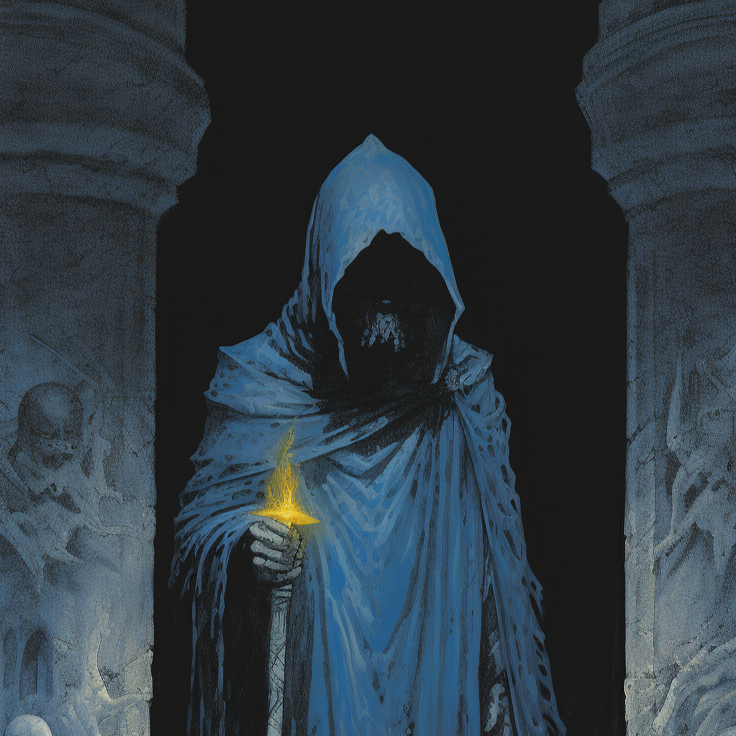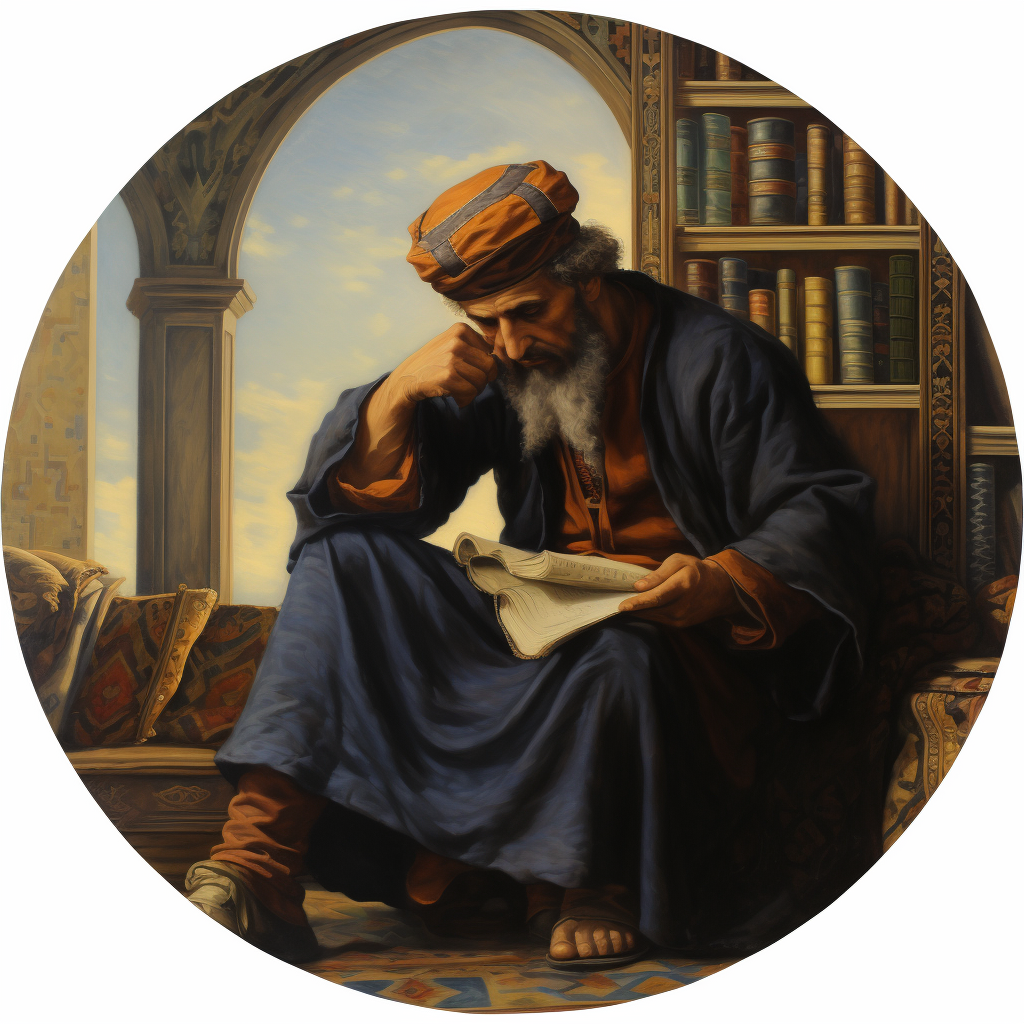I’m very grateful for the invitation to respond to the question in this year’s Big Ideas question: “Who do you think you are?” It’s a question I often ask myself and sometimes pose to others.
But the gadfly philosopher in me wants to be pesky here: I’m compelled to first question the question itself, to interrogate the assumptions that cause us to ask it in the first place.
When we are asked who we think we are, we are essentially being asked to explain how our sense of self develops. One approach to doing this is detailed in the guidance from The Big Ideas editors — to provide a “personal essay or narrative,” or more simply put, a “good story.” Perfectly reasonable. Who among us doesn’t like a good story?
But that, not surprisingly, leads me to ask a few other questions: What is the connection between the development of a sense of the self and a narrative of the self? How does the question of who you are or who I am become a question of storytelling? Is the self a story?
It’s this last question that I must pause here to investigate.
There is simply no denying the omnipresent force of the narrative idea of the self. It dominates our culture: We are the stories we tell about ourselves — and the better the story, the better the self that tells it.
Major philosophers such as Alasdair MacIntyre, Paul Ricoeur and Charles Taylor all defend variations of the idea that the unity of an individual life is consistent with the unity of the narrative that we recount about that life. To the philosopher Daniel Dennett, “We are all virtuoso novelists,” who “try to make all of our material cohere into a single good story. And that story is our autobiography.” For the philosophical neurologist and compulsive storyteller Oliver Sacks, “Each of us constructs and lives a ‘narrative’ … this narrative is us, our identities.”
It is a very compelling idea, even an irresistible one. Who doesn’t want to see their life as an unfolding story, a quest or what the popular scholar and writer Joseph Campbell called in his mythological studies “the hero’s journey”? The story is what motivates and validates the hegemony of memoir, which accounts — lest we forget — for much of what remains of the publishing industry.
What is so seductive about narrative ideas of the self is that one’s life story can be told as something with a beginning, a middle and an end. Often the story will be told around some defining trauma from the past — abuse or addiction will serve — or just having too much of a good time with sex and drugs and rock ‘n’ roll.
The template for such an idea of the self is religious. Stories of the self are very often narratives of salvation or redemption: I was a sinner and now I am saved. One thinks of Augustine’s “Confessions,” arguably the most influential autobiography in the Christian West. It tells the story of Augustine’s conversion from good-time pagan to bishop and strident defender of the faith.
Among the most widely read books in the 18th and 19th centuries was John Bunyan’s “Pilgrim’s Progress,” which vividly describes the self’s journey from the sin and destruction of this world to the Celestial City after passing through the Slough of Despond, or Swamp of Despair. Such redemption stories are incredibly popular.
We might think these stories are things of the past, since we’re supposedly living in a secular age. I have always been a skeptic in that regard, particularly in religion-obsessed cultures like the United States, where autobiographies that are essentially Christian accounts of salvation dominate. Just think about Barack Obama, who had written two such autobiographies by his mid-40s. They sold very well.
The moral conviction that drives this idea of the narrative self is that it is only through narrative that we can attain that great shibboleth of the modern age: authenticity. An authentic self is a self that can be made into a great story. And such stories can be relentlessly commodified. It’s not just Mr. Obama and his fellow politicians who resort to this technique. Almost everyone, from the obscure and downtrodden to the rich, fabulous and famous do it: Tell your story to sell your story.
But marketability and book sales are not the point here. It is the validity of the concept of the narrative self I’m interrogating, and to be clear, I am skeptical. I suspect that those of us who tell and endlessly retell stories of our lives — keeping diaries, constantly journaling (which at some point became a verb) and imagining future memoirs — are simply engaged in an act of self-serving self-absorption. Even worse, this self-absorption often masquerades as a moral lesson.
I am leaning heavily here on the work of the British philosopher Galen Strawson. He criticizes the sense of the self as an ongoing, continuously retold story and proposes instead an episodic concept of the self, one that is more transient and fleeting, more discontinuous. The upshot — and, possibly, the upside — of this view is that rather than living tightly in the constantly retold past and imagined future, the episodic self might be said to live in the present, to let go and live now. Like Mr. Strawson, I think the self is more truthfully described as a series of episodic blips than some grand, unified self-aggrandizing tale.
Let us pause for a moment here to turn inward and inspect our own selves: What do we find? We become aware of something like a mental presence that might or might not be completely defined by our physical being. But such periods of unbroken experience of the self are very brief, just a few seconds or so, and are soon interrupted by the bleeps on our phones or by nodding off. And what about the self that just gazes off into middle distance in a vague, absent-minded awareness? Why isn’t that who we really are?
The self is an odd, inconstant and variable thing. It can be quiescent, a kind of flatscreen humming or whirring, and then it can flare up or be flooded by anxiety or bitten or torn in two by bad conscience. Or again, the self can be completely immersed and engaged, as when watching a captivating sports game or enjoying a piece of music that we love. At such moments, we can be transported, taken outside ourselves. But then we fall back.
The self is not a stream. It is less a seamless flow than a series of jumps and starts that flicker into intense alertness before sliding back into inactivity or boredom. It is a discontinuous series of episodes, an amalgam of blips, pauses, stalls and restarts.
If such an episodic life dooms us to inauthenticity, then I say: So be it. The self is not a story.
But a discontinuous self forces us to live in the here and now rather than in the retold past and imagined future. We might even have the feeling that the self is constantly just beginning.
Life doesn’t need a narrative arc. We don’t have to be the stories we endlessly tell and retell about ourselves. Those stories are fabulation and — if told too often — falsification. The more gusto with which we tell stories about ourselves, the further we risk slipping from the truth. One doesn’t have to control one’s sense of self by constantly tying it back to some fictional story of identity.
To live episodically is to allow for the possibility of surprise in relation to the self. Sure, sometimes those surprises are bad. But sometimes they can be rather good.
To live episodically is also to accept that the self is something more fleeting, something composed of bundles of insights which very often come not from within us but from others. From people we love and trust. Or sometimes from people we mistrust and loathe.
Most importantly, to give up the narrative sense of the self is to allow for the possibility of metamorphosis, of the self being able to embrace new forms, new identities and new personae that we can inhabit and discard, then move on. Perhaps our very freedom consists in the capacity for such a metamorphosis.
Simon Critchley is a professor of philosophy at the New School for Social Research and the author of, most recently, “Bald: 35 Philosophical Short Cuts” and “Question Everything: A Stone Reader.”


